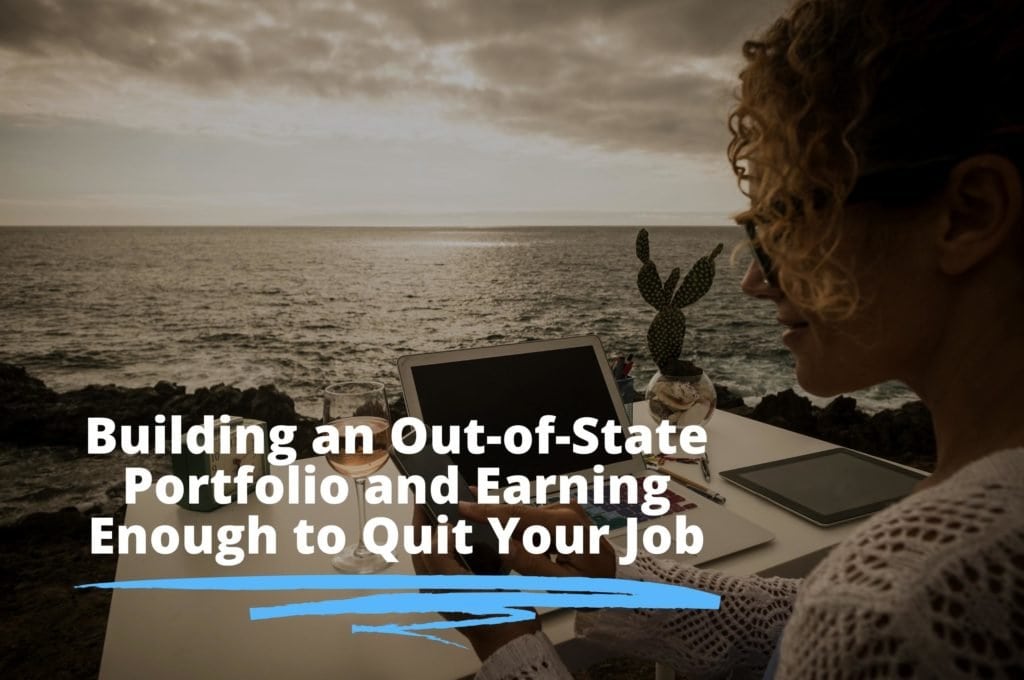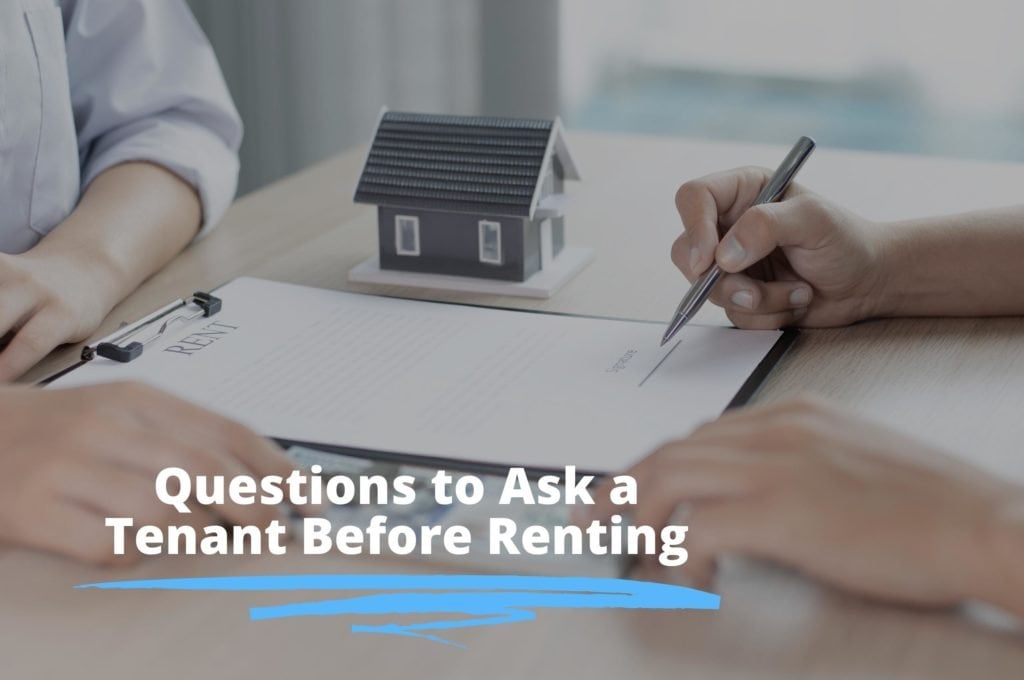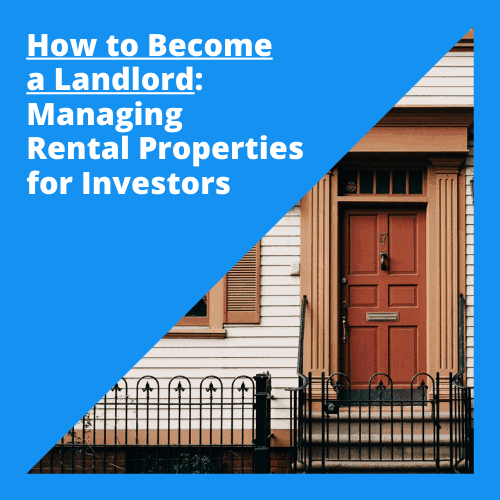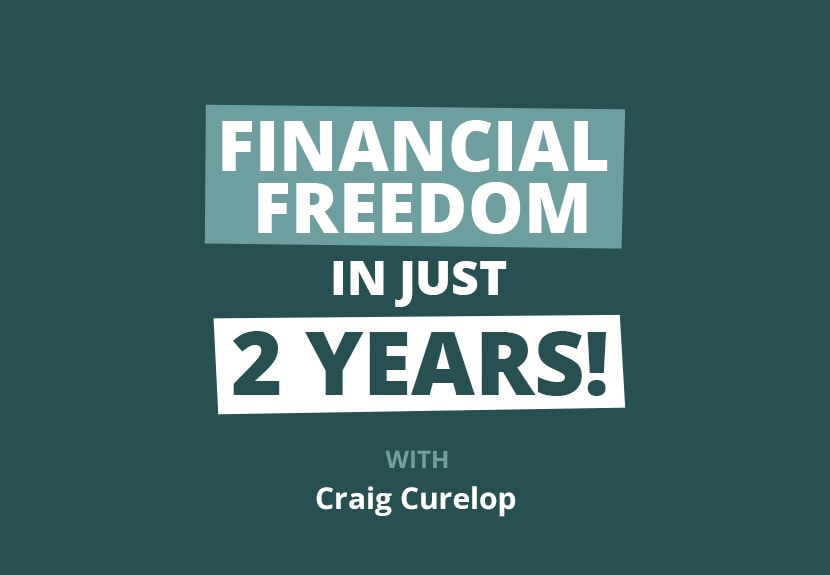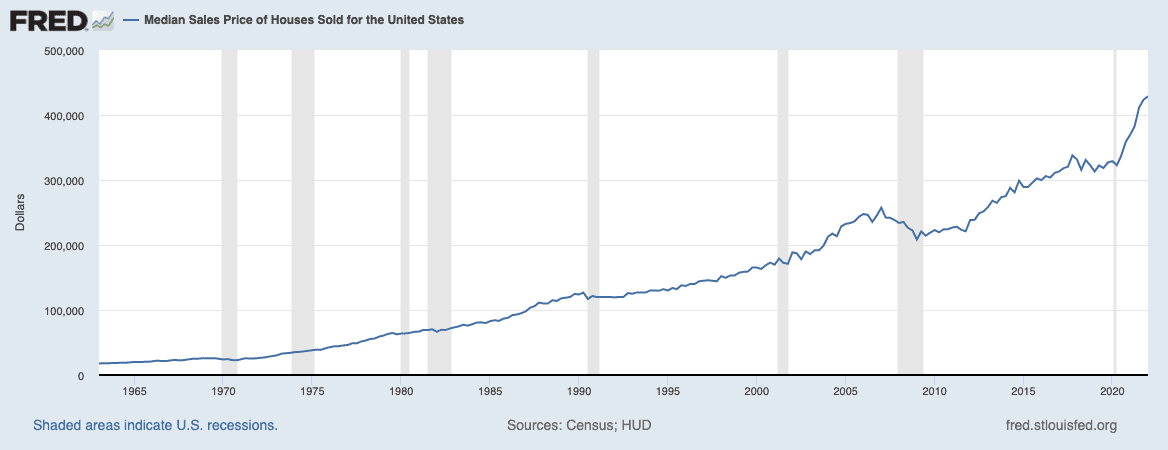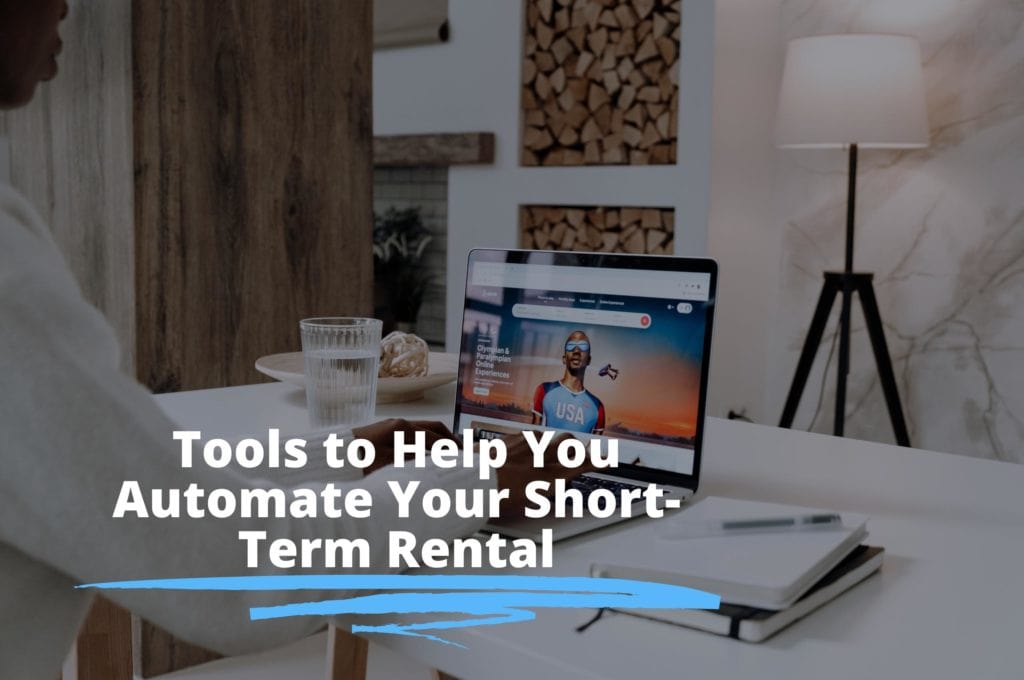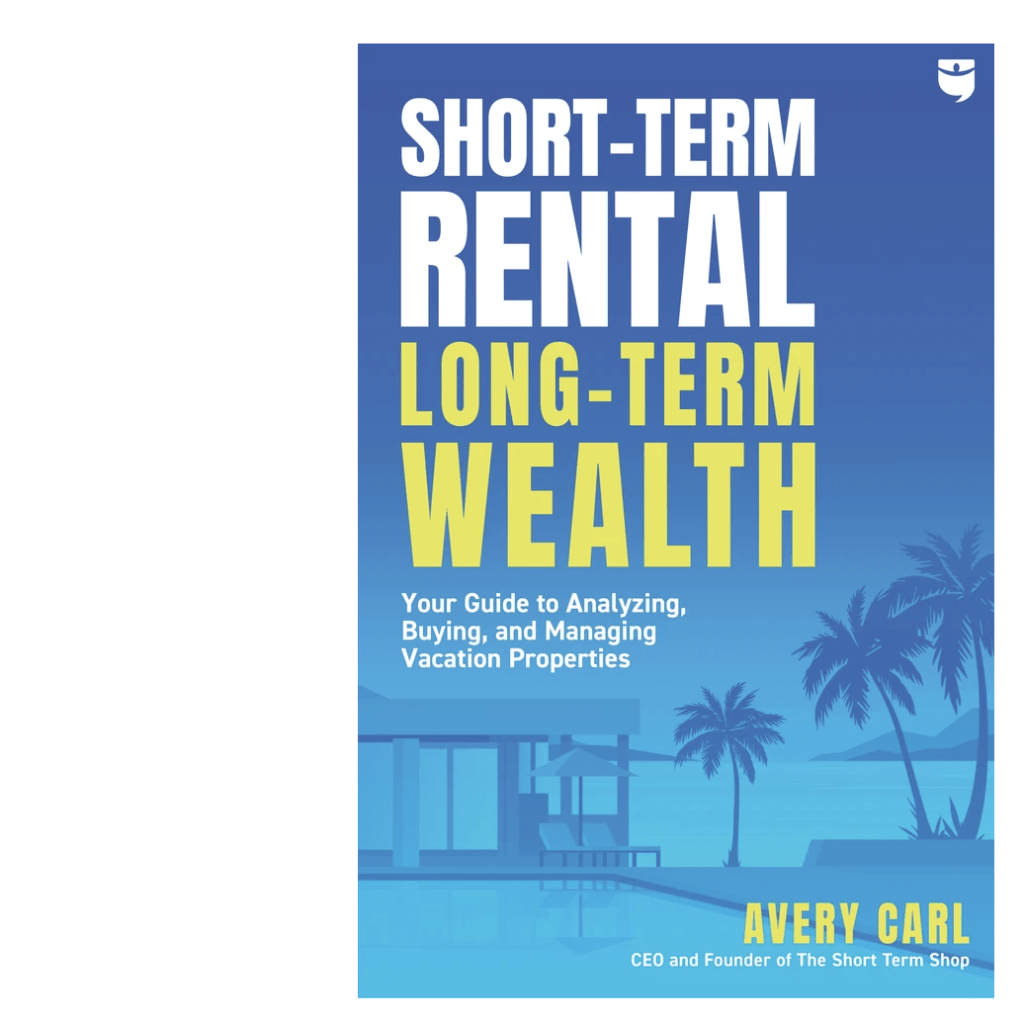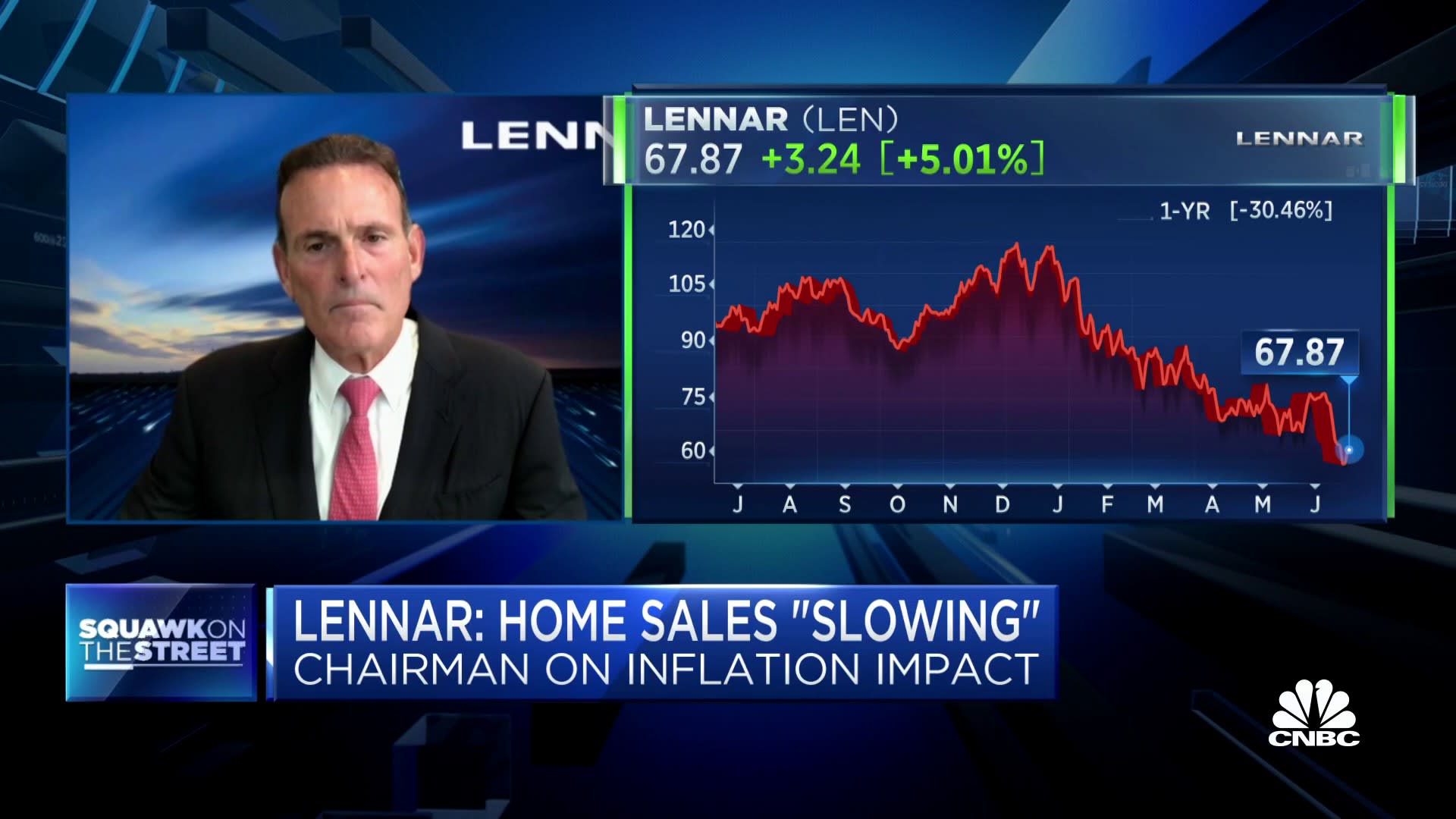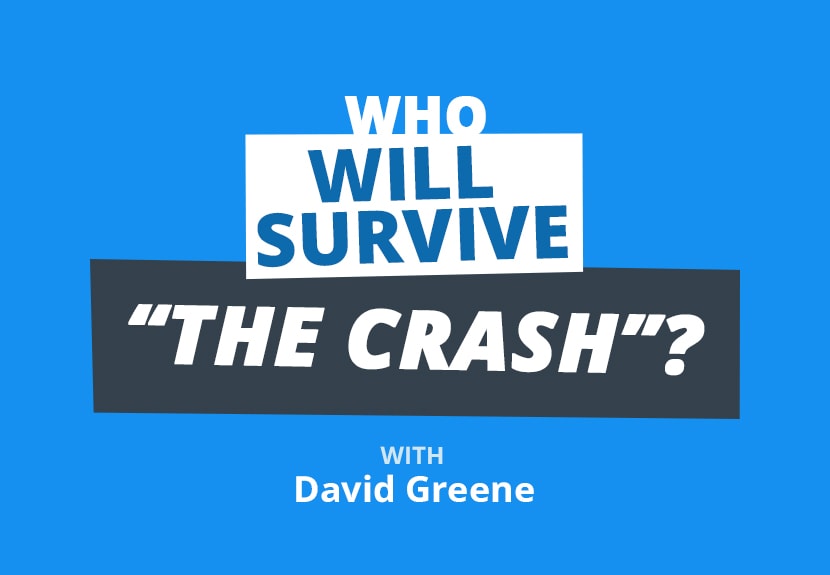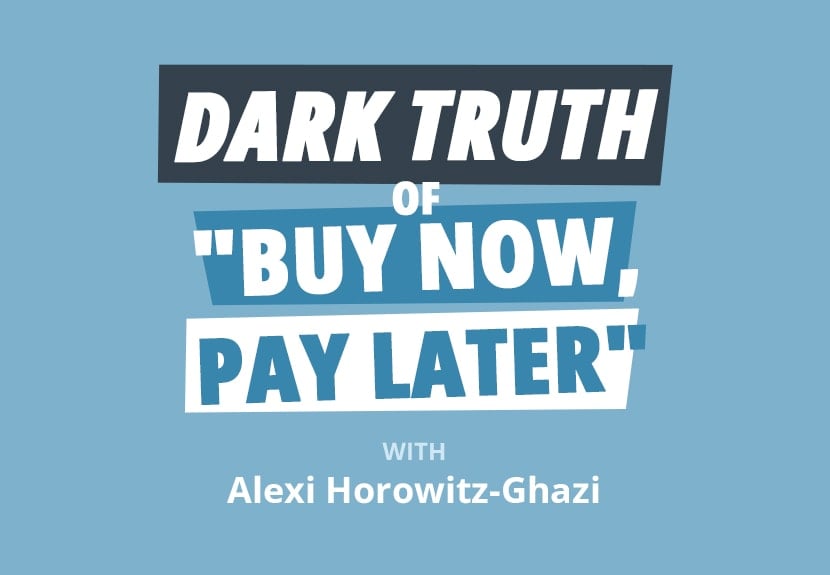Before you get into house hacking, you need to understand the basics, and today Craig breaks them down. He goes over the different ways to house hack and its advantages and disadvantages. Craig also talks about how to live with your tenants and the boundaries needed for your ideal house hacking situation. Craig paints the whole picture so you can make an informed decision and decide if house hacking is the way for you to become financially free too (or at least build more passive income)!
Ashley:
This is Real Estate Rookie Episode 195.
Craig:
And so, you need to look at the house with the proper layout, so that you can separate the upstairs and downstairs. For example, there’s many houses in the Denver area where the side door that is right where the stairs are to go downstairs. So, all you have to do is put a little wall up or put a little door up and you’ve got two separate units. And that would be perfect to Airbnb the downstairs. We do that. I’ve got many properties that are just that and I think that’s the most efficient way and the way I like to house hack now.
Ashley:
My name is Ashley Kehr and I’m here with my co-host, Tony Robinson.
Tony:
And welcome to the Real Estate Rookie podcast where every week, twice a week, we give you the inspiration, information and motivation that you need to kick start your real estate investing career. Ashley Kehr, my co-host, what’s going on? What’s new in your neck of the woods?
Ashley:
Well, I’m currently in a stretched position trying to get my knee to stop being painful right now. The six-month, the never ending complaining of me with my knee problems. But hopefully, I just had my last surgery and hopefully, I’m on the mend, but I avoided my pain pill today, which I probably should not have. But I wanted to be of a sound mind for the podcast recording, but I feel like that’s not even possible, even without me on drugs, so yeah.
Ashley:
But yeah, other than that, everything’s good. I’m going to look at a property tonight that could potentially just be a long-term buy and hold and getting excited. I think when this airs, this has already happened, but I’m going out to Boise, Idaho to a conference that I’m going to be the emcee at and speaking at for AJ Osborne. And it is his CRU Circle event, so it’s on mostly about commercial real estate investing.
Tony:
Yeah, it’s exciting. There’s like a loaded lineup of speakers for that one. I think Thatch is speaking there, Brandon is speaking there, so quite a few number of people. When is it again? June, what through what?
Ashley:
June 14th to the 17th.
Craig:
Okay. I think we’re at another conference that overlaps with that, but yeah, I saw the lineup. I thought it was really cool. I wanted to attend. So, you have to give us the full download once you get back.
Ashley:
Don’t worry. Follow my Instagram stories and you’ll be able to see all that.
Tony:
There’ll plenty of that, yeah.
Ashley:
Nothing about the conference, it’s just the after party.
Tony:
Just the yeah.
Ashley:
No, I’m kidding.
Tony:
Yeah. More hula hoops and masquerading views and stuff like that. How cool.
Ashley:
Yeah. Yeah, the last time I went to an AJ Osborne conference, it was in Coeur d’Alene, Idaho and it was a Self-Storage Conference. And I remember the first night, he’s like, “Oh, I’m having just like a small VIP little cocktail hour. It’s just going to be some hors d’oeuvres and cocktails. Just join us.” And it was like oysters, fresh cut prime rib. I’m like, “Wait. What does this cocktails and hors d’oeuvres? This is like a meal, a 10-course meal.” So, the food is what I’m most looking forward to.
Tony:
There you go. All right. Not the networking, not amazing content. It’s the food. I love it.
Ashley:
So, what’s new with you, Tony?
Tony:
Actually, while we were recording this podcast, I got an email that we just closed on another one of our flips, so that’s always exciting. This one’s cool because all of our other flips, we’ve been using that money towards the purchase of more short-term rentals. But this will be the first flip that’s not earmarked for another purchase. We actually get to spend some of it, so that’s always exciting. So, we started flipping houses late last year and we’ve rehabbed, I don’t know, quite a few in Joshua Tree now. So really, really excited that we can continue to grow that part of our business.
Tony:
And we’re flipping these properties as turnkey short-term rental, so even though it’s technically a different type of real estate investing it pretty much is still what we’re doing. But instead of us keeping the property, we’re just selling to someone else at the end. So, it’s been cool to learn this other side of real estate investing and the properties turn out, we get better every single time. So, if you guys want to see the flips or you guys want to maybe buy them from us, you guys can follow on Instagram. It’s @TonyJRobinson. I usually post all the flips we’re selling there.
Ashley:
I think that it’s so cool that you are taking exactly what you’re doing and learning how to have a different exit strategy based off of it. But also helping other people get started. Having a turnkey property is a great way to get started in real estate investing if you know nothing about rehab and especially if you want to get into short-term rentals. A lot of the properties that you have bought purchased out in, and even Joshua Tree, but in the Smoky Mountains, too, a lot of them were pretty much turnkey, correct?
Tony:
Pretty much, yeah, everything we bought in the Smoky’s has been turnkey. It was an existing short-term rental, it came fully furnished and we spent a couple of thousand bucks like replacing linens and missing silverware and stuff like that. But yeah, there’s definitely a gap right now I think in the short-term rental industry, in terms of turnkey opportunities in a lot of markets. If you look at long-term rentals, there’s turnkey operators in almost every major location, but that same thing hasn’t happened yet for the short-term rental. So, we feel like we’re filling a void there, yeah.
Ashley:
Well, today, we are talking about a specific topic and that is house hacking, not short-term rentals. And we have an expert on today, Craig Curelop, who wrote the book, the house hacking strategy. So, Craig joins us from Denver where he has his real estate team, but also recently, we found out just moved to Idaho. So, Craig is coming on today to talk about house hacking, what it is, is it still possible to do in today’s market? What are the advantages, the disadvantages of it?
Craig:
And I’m glad we brought Craig on, because in my mind house hacking is one of the lowest risked ways I think to get started as a real estate investor. And Craig Curelop breaks down his five-year blueprint that most people can probably achieve financial freedom by following or using house hacking as a strategy. So, overall, just Craig is a wealth of information when it comes to house hacking and we hear a little bit about his story, how he got started, how he was sleeping in a cardboard box in his own living room. And how that led to him achieving financial freedom. So, overall, just a really cool conversation with Craig.
Ashley:
Craig, welcome to the show. Thank you so much for joining us, since last time we tried to record with you, you ditched us.
Craig:
I know, I know. Well, I missed the memo. I thought we were doing this podcast in the river in the Grand Canyon on the Colorado River. So, you guys didn’t show up, I was waiting for you.
Ashley:
You know what, I think that is the best excuse to not show up to a podcast recording. And you know what, you’ve definitely left your mark because you’re the first person to not show up to a rookie podcast [inaudible 00:06:41].
Craig:
Really? I’m in the record books?
Tony:
You’re in the record books, man.
Ashley:
Yeah.
Craig:
All right, put me down.
Ashley:
And so Craig, tell us a little bit about yourself. For people who don’t know, you’ve written the book, The House Hacking Strategy. You’ve been a big part of BiggerPockets and you’re a real estate agent. So, just give us a brief backstory on you.
Craig:
Yeah. Really, it all started like a lot of people start out in this industry, just absolutely hating my W2 job before I worked at BiggerPockets. It was honestly-
Tony:
I was I going to say, I was like, “What did you work for?”
Craig:
Yeah. Scott’s in the background there, like yeah. No, so it was when I was in California working like a venture capital job, being an analyst. And just working hundreds of hours a week and looking down the hallway and seeing that my progression would be moving 30-feet down the hall to being my boss. And maybe I worked a hundred hours a week, maybe he worked 80 hours a week, so it really wasn’t a good life.
Craig:
And so, I started getting the idea of a passive income after reading Tim Ferriss’s book, the 4-Hour Work Week. And after reading that book, I was like, “Oh, I should start thinking of my expenses on a monthly basis, my salary on a monthly basis. And then if I can just get enough passive income on a monthly basis to cover my expenses, well, I’m financially free and I no longer have to work.” And that sounds a lot of fun. I get to travel, spend time with friends, do whatever I want and live on my own time.
Craig:
And so, being in Silicon Valley, I was trying to think of dumb startup idea after dumb startup idea and if you didn’t know, Silicon Valley is filled with dumb startup ideas. And so, none of those just worked. And so then, I went back to my house and I looked around and I was living in a 20-unit apartment building. And I was like, “This little Spanish lady, who comes to collect rent every month has probably collect in a hundred grand on the first of every month. And all she has to do is drive her car here.” I was like, “That sounds pretty cool.”
Craig:
And so then, I started diving into real estate. Obviously, I found BiggerPockets, not long after that and then I went down the rabbit hole. And so, within six months of finding BiggerPockets, I found myself working at BiggerPockets, moving to Denver, purchased my first house hack. And that’s where it all started.
Tony:
Craig. I love that you made that observation of, “I’m working a hundred hours a week. Once I get promoted, I get to look forward to 80 hours a week.” Which is, it’s such a weird dynamic, but it’s what so many of us are accustomed to and it was that light bulb that made things go off for you. It’s so funny, man. The 4-Hour Work Week was one of the first books I read about entrepreneurship as well. So, for me, it was Rich Dad, Poor Dad and The 4-Hour Work Week came shortly there afterwards and that’s when I went down the rabbit hole, too, man.
Tony:
But Craig, what makes you unique, man, is that you’ve built a name for yourself around one specific strategy within the world of real estate investing. So, breakdown for us exactly what house hacking is and why you felt it was a good place for you to start your investing career.
Craig:
Yeah. So, I think anyone who’s young or anyone really, in general, house hacking is probably the best place to start. And so, what house hacking is, is the idea that you’re going to purchase a one- to four-unit property with a low-percent down, typically, 3 to 5% down. Because you’re doing a low-percent down loan, you’re required to live there for one year and while you’re living there, you’re able to rent out the extra bedrooms or the extra units. So, the rent that you’re gathering covers your mortgage and you’re able to live rent free.
Craig:
And I would bet that 90% of the people listening right now, their largest expense is their living expense, unless they’re house hacking, of course. And so then, so you’re eliminating your largest expense, you’re investing in a property, you’re living in your investment and so, things aren’t going to go bad when you’re living there, because you’re seeing it every single day. So, it’s like landlording on training wheels and you’re able to do this year after year after year until you have a pretty sizable portfolio. And you can easily achieve financial independence just through house hacking.
Tony:
Craig, thanks for that breakdown, man. So, I just want to recap it to make sure that our listeners are following. So, essentially, you go out, you buy a property and then you rent out the extra space in that property to help offset your cost of owning that home. Did I wrap that up the right way?
Craig:
Yeah, you got it, man.
Tony:
So, Craig, let’s talk about why do you feel this strategy is a great way for newer investors to start. And especially given where the market is at today, there’s a lot of fear, I think, of a lot of people who want to get into investing. Why is house hacking a great place to start?
Craig:
Yeah. It’s a great place to start because you don’t need a lot of money to get started. Simple as that. You need 3 to 5% down. So, if you’re in Denver, buying a $500,000 property, you need between $15 and maybe $30,000 down. That is a lot less than what it would typically cost to buy a $500,000 property over a hundred grand. And so, you’re not putting a whole lot of money down. Because of that, your returns on investment are massive.
Craig:
Like I said prior, it’s you’re landlording on training wheels. You’re living in your investment, so you’re seeing your tenants come in and out. You can stop things and nip them in the bud before they get too bad. And so, I think those are two really big reasons why house hacking is a great way to get started.
Ashley:
Now, you talk about that half a million dollar house that somebody is going to go purchase and maybe they’re buying that because it has four bedrooms, so they can live in one and rent out the other three. How do you get approved for these higher purchase price instead of having to buy a two-bedroom one bath, because that’s what you can afford, but if you’re house hacking this bigger property with more rooms, does the bank actually look at that income that you’re going to be bringing in on the property?
Craig:
So, this seems to change by the month, it feels. Sometimes, the bank will look at prospective rents and take 75% of border income is what they call it. They were doing that at one point. I think they stopped doing that as of this recording. By the time this releases, they may start doing it again. So, my recommendation would just be to talk to a bunch of different lenders and see if they can use any of the expected rent to offset the debt payment to increase your debt to income ratio. Now, you can definitely do that if you use an FHA loan on a two-, three- or four-unit property. I’m just not sure how that works with the bedrooms at this point in time.
Ashley:
So, now, how you talked about things change going on with lenders and definitely, everything in the market is changing right now than what we’ve seen in the past several years. So, has that affected house hacking at all? And is it still possible to house hack a property?
Craig:
So, I truly think that there will never be a time where house hacking is not advantageous. I just don’t see a time. The reason is one, there’s many different types of house hacks. And so, if you’re buying a four- or five-bedroom house, you’re living in one unit, renting out the other. In a bad economy, you’re offsetting your mortgage payment, which will only help you. You’re offering cheaper housing to people who need cheaper housing because obviously people pay less for a room than they will for a full unit.
Craig:
So, I don’t see the necessity for house hacking really going away. I thought, I legitimately thought I was nervous when COVID hit that people may not want to be living in a room with four strangers that they don’t know where they are or how dirty they are. But honestly it’s like it wasn’t even the case. So, because house hacking persisted through COVID, lasted through COVID, I just don’t see any scenario where people wouldn’t want to do that.
Tony:
So, Craig, you also mentioned there’s multiple ways that you can house hack. So, I just want to break down some of those and tell me if these different scenarios work with house hacking. So, you already mentioned you can go out and buy a big house. Buy a five-bedroom house where you rent out the other four bedrooms. What if I want to rent out my basement? Can I house sack my basement?
Craig:
Yeah, we do that all day. So, it depends. Obviously, you have to know what the houses look like in your area. Many houses in the south don’t have basements. In Denver, a lot of houses do and so, you need to look at the house with the proper layout, so that you can separate the upstairs and downstairs.
Craig:
For example, there’s many houses in the Denver area where the side door that is right where the stairs are to go downstairs. So, all you have to do is put a little wall up or put a little door up and you’ve got two separate units, and that would be perfect to Airbnb the downstairs. We do that. I’ve got many properties that are just that. And I think that’s the most efficient way in the way I like to house hack now. Now, that I like to have my own space, now that I’m a few years in.
Tony:
What about like, I don’t know, say I have a detached garage or an ADU in the back. Can I house sack those?
Craig:
Sure. I mean you can house hack anything. You can put a tent in your backyard, you can add storage units. There’s so many ways you could get money out of your house. But people ask me a lot, “Should I renovate my garage and add plumbing and add electrical and add all of these different things?” Honestly, I think it’s going to cost you 75 to 100 grand to do all that. You might as well just buy another house is my thought. It would be less work, less stress, less permits and less time. So, if you got 75 to 100 grand, I would say like, and you get to keep your garage. So, my two cents, I don’t love the garage conversion thing, but it all depends on where you live.
Tony:
Yeah. And I’m asking these questions facetiously. The point I want the listeners to understand is that whatever extra space you have, whether it’s a basement, an ADU in the back, or you buy a multifamily where you live in one unit and you rent out the other three units. Whatever extra space you have on your property, you can turn that into an income generating space as opposed to a liability like it is for most people.
Craig:
100%.
Ashley:
Also, parking for RVs and boats, that’s really big in our area, so a lot of people have these in over the winter. They need somewhere to store it in their driveway in the suburb. It might not be big enough to actually store it and so, they need somewhere else to store it. And a little side note here, our producer also chimed in with a studio space in your kids’ closet, which is how I recorded for the last three years.
Tony:
Yeah. And if you guys don’t know-
Craig:
There you go.
Ashley:
I’m at my kitchen now. No, but-
Tony:
Yeah. If you guys don’t know Ashley’s kids, they’re actually ruthless landlord. So, Ashley pays a premium for recording in that studio every single month. So, she taught them well.
Ashley:
Actually, they did. My one child has a really nice big walk-in closet and I’m forced to take the small bare minimum walk-in closet for my studio.
Tony:
Oh, my gosh. I love that.
Ashley:
The thing is with my knee, with hurting my knee, my knee has been straight for so long, so I haven’t been able to bend it enough to get into the studio…
Tony:
Get back into the closet.
Ashley:
… other than that. So, I should be able to move back in shortly.
Tony:
So, Craig, we talked about some of the benefits of house hacking, some of the different ways you can do it. But what do you think are some of maybe the disadvantages that come along with house hacking? Maybe why is it a bad approach for someone?
Craig:
It is a little bit more work, obviously. You are maintaining a house and you need to get tenants and you need to sign leases and do your diligence and all that. So, it doesn’t come without a cost. Is that cost large relative to what you’re getting out of it? I would say not at all. My story is I went from a negative $30,000 net worth to financially free in two and a half years, mainly through house hacking.
Craig:
And so, it’s not get rich super quick, but it’s get rich pretty darn quick if you want to do it the right way and you want to really be scrappy. And I was really scrappy for those first few years. And so, yeah, I just think that, I think it’s for anyone that wants to, again, expedite their path towards financial independence.
Tony:
All right. So, Craig, appreciate you breaking down some of the disadvantages of that. I think it’s important for new investors to hear both the good side and the bad side of real estate investment, because every type of real estate investing comes with some type of downside. And you just got to make sure that if you choose this strategy that it will align or that you can stomach what those downsides are, I guess.
Tony:
Now for me, Craig, one of the biggest things that I’d be concerned with from house hacking is having to share my personal space with strangers. So, what tips or advice do you have for someone that might be worried about the same thing?
Craig:
Yeah, so we talk in the book about the comfort continuum. On one side, it’s comfort and on the other side is profit. And on the far side of that continuum, the profit side, it’s, yeah, you’re living on the couch in your living room and renting out every other room in your house, so understandable if you don’t want to do that. So, you just move along the continuum towards the comfort side, which is what you mentioned before Tony, about having a house where you just rent the basement. So, that way you have your own space. I’m sure you may hear them come in and out.
Craig:
But honestly, when we’ve done this, I don’t think I’ve ever even seen my Airbnb guests. I’ve heard them walking down the stairs and stuff, but you really don’t see them that much. And so, that usually is enough privacy, so that you can still make some money, you can still cover your mortgage or at least get pretty darn close and you can still make serious leaps towards financial independence.
Ashley:
So, are there a lot of properties out there that have the basements redone or what are some things that me or anybody could look for when they’re looking for a house hack? What do you look for when you’re searching for a property?
Craig:
Yeah, so in Denver, there are a lot of basements that are completed. And so, those are really easy to Airbnb, especially if you don’t care to add a kitchen or anything like that. Obviously, if you add a kitchen, it will get you a little bit more and then you have some more flexibility with maybe splitting it up into two units later on. But if you’re just looking at Airbnb, all you really need is like a microwave and a mini fridge and you’re good to go.
Craig:
I personally like to add kitchens, because I like to have that flexibility in case Airbnb ever goes away or anything like that. And so, what I like to look for is big utility rooms. You’ve got the washer and dryer in there, but you’ve got all the exposed pipes, you’ve got the electrical, so it’s very easy to add a kitchen down there. And usually, it’s about the space that you’d want for a kitchen. And so, it may cost 15 or 20 grand to add that kitchen. And now, you’ve got a house with two kitchens, maybe two laundries. And so, you’ve got this true single family house with a mother-in-law suite that you could rent out both sides. So, it’s like a duplex, but not technically a duplex.
Ashley:
Okay. So, if you purchase one of these properties, are there zoning requirement to say you’re just doing house hacking where you’re just putting maybe a person in each bedroom? Are there zoning requirements for that? And we can talk about the short-term rental side, too, but just for having somebody do long term rental in rooms, does that matter at all?
Craig:
So, each city or each town has different rules for the maximum unrelated people living in a house, so you’ll need to know those rules and my recommendation would be not to break those rules. I would say that most of the time, those rules aren’t super enforced. But again, it’s up to you whether you want to take that risk or not. I know plenty of people that have taken the risk, they have not gotten caught, but it just takes one annoying neighbor to catch you.
Craig:
So, my recommendation is figure out what your jurisdictions laws are, surrounding maximum unrelated tenants, and then you can buy the four-or five- or six-bedroom houses based on what that number is.
Tony:
That’s interesting. I did not know that that was even an ordinance or a law that cities had. But interesting as you go narrow and deep on some of these different strategies, you start to uncover all these different weird nuances. Craig, I want to go back because you said you started off by renting out rooms in your house. That was your first house hack and you’ve graduated to this basement strategy?
Craig:
So, my first house hack was where I was living in the living room behind a curtain in a cardboard box. And then, I went to Rent Find, then I discovered that I could have my own bedroom.
Tony:
Yeah. There was a step-up above that. That’s hilarious, man.
Craig:
Yeah, yeah. Having my own room was a luxury.
Tony:
So, talk us through that. What are maybe some rules. I think it’s a little bit easier if you have separate units. If you’re living in the upstairs unit, someone else is living in the downstairs unit, you’ve got a triplex where there’s two other units. But if you’re in the same house and you’re renting out spare bedrooms, what are some ground rules you should set in place for your tenants? How you screen people to make sure you don’t get some maniac living with you? How do you set yourself up for success?
Ashley:
First, Craig, before you answer that this is bringing you back to college days where this is, house hacking is very common, where you get your group of friends together. You rent a house, each person pays by the bedroom. But I think this is very different is because you’re going and getting your friends to live with you. So, there may not be as many set rules in the house, but you also have that other person as the landlord that collects the rent from everybody, make sure the utility is paid, things like that.
Ashley:
Where now, you are responsible to make sure that everybody is paying and choosing the people to live in those rooms. You may have never have met them before. So, yeah, I’m curious as to what, do you have a rules list that’s posted on the fridge? How do you share the common area?
Craig:
I did have that rules list, but I can tell you, I don’t think people can read. So, this is obviously, it is a thing, but honestly, it’s not as bad as people make it out to be. There’s this common misconception that when you think of rent by the room, you always think first thing is college, living in a five-bedroom place with your buddies. But the thing is you’re not living with your buddies. And so, no one really cares to interact with each other, so there’s not really much like living room, people aren’t really hanging out in their common areas.
Craig:
Most of the time, people are throwing a DiGiorno’s pizza in the toaster oven or the oven, whatever, and bringing it back to their room and that’s it and you’re not. And so, really the rules, we set them right in the beginning. So, I think you always want to make sure that in the beginning and it’s “Clean your dishes, wipe up after yourself.” And then once a month, we’ll get a cleaner to clean the bathroom and the kitchen. And those main areas like that.
Tony:
Craig, did you ever have any instances where people, your tenants weren’t following those house rules that you set up? And if so, how did you go about correcting that?
Craig:
Yeah, tenants, they’re not usually that bad. In my experience, they just haven’t been that bad. Maybe I’ve done a decent job at just screening them. But in the event that something would happen, really, you have to address it soon and address it often before it becomes a habit for them. Habits take a long time to break. And so, if they have a habit of leaving that coffee stir spoon in the sink and that annoys somebody, you say, “Hey, you mind just rinsing that off and whatever, throwing it in the dishwasher?” And just tell them every single time that it happens, so that way they don’t fall back into their habit.
Craig:
And so, if you tell them just once though, you can’t get all mad at them if they do it again a second time. They’re in a habit. You’re helping them break this habit, so you have to realize that it’s going to take time for them to adjust out of that. But to continue to adjust, to asking them and asking them nicely, so there’s no hostility in the house.
Ashley:
Come on, Craig. The answer we wanted to hear is that you laid down the law, you came out, you had your mustache. You had your stored attached to you and walked around the house to make sure all the rules are followed.
Craig:
Yeah, I just walked around with a shotgun.
Tony:
Yeah, Craig, perfect execution. So, you talked about the screening piece, man, so help us understand. For me, I would probably be a lot more stringent for house hacking tenants than I would be for a traditional tenant because I have to share the space with them. So, what did your screening process look like?
Craig:
Yeah, so we would send out an application and that application would basically make sure that they give us their credit score and a background check. Personally, what I looked for was 650 or higher credit score and a clean background check. If there was a DUI like a few years ago or something like that, I would let that go, but obviously, nothing drug-related or nothing violent-related. That’s an automatic pass. And then, you have the landlord references, the employer references, the pay stubs and all that stuff. And so, try to gather as much information as you can about the tenant, verify that information, and then you can go ahead and accept them.
Ashley:
And Craig, there are separate rules for screening a tenant if you are going to be living in the same property, correct?
Craig:
Yes, that’s right. So, if you’re living in the property, there’s the fair housing laws, which you can’t discriminate based on race or sex or family or whatever. But if you’re living in the house, you can basically say any reason that you want. I recommend, just make your life easy and don’t deny somebody because of their race or their religion or something like that. But it could be like, “He looked like a high school bully of mine and I didn’t like that.” And so, that is a perfectly valid reason to not want to live with somebody and so-
Tony:
Craig, was that a real reason? Did you really turn somebody away for?
Craig:
Yeah, I got afraid of one guy. I was afraid he was going to steal my lunch. So, those are like, you can. You’re right, Ashley. You can be a lot more stringent and have weirder answer. If you just don’t want to live with somebody, it’s fine, but I would try to stick to the fair housing laws as best as you can.
Ashley:
And then, what’s a good way to make sure that you stay in landlord mode. And you treat this like a business, so that maybe you’re having everybody pay online or something. It’s just automatically deposited into your account versus getting like, “Oh, well.” Having the person next door to you knocking on your door and be like, “Hey, here’s $100. I’ll deposit the rest later and stuff.” How do you keep that, focus on your business and those systems and processes and it doesn’t get too relaxed into a friendship mode?
Craig:
Yeah, no, that’s great. So, I use a system called Rent Ready. I think I’m sure, I think they were on the bigger pockets podcast and all that. And so, it’s a software that allows the tenants to submit maintenance requests. It allows them to do automatic rent payments and all that. And so, basically you just make sure they set that up in the first month and then you never have to ask for rent ever again, which I think is amazing. As for not getting too friendly with your tenants, that’s a really easy thing to slide into, especially if you’re very friendly.
Craig:
What I would do is I would be civil and cordial with them in the house, but I would never really ask them to hang out, go somewhere to hang out. I would never ask them to go to a restaurant or go to a bar or go snowboarding or anything like that. But that’s just the culture of my house. One way that a lot of people get their houses filled is that they niche out their house, so they say like, “Snowboard is paradise,” or like, “Rock climber haven.” So then, they get a bunch of snowboarders and then they go and they become friends. And that’s actually a really good way to get tenants. So, it really just depends on how you market your house hack and what house hack you want it to be.
Ashley:
That’s cool. I’ve never heard of that before like picking a niche and trying to get people that have common interest into a house.
Craig:
Yeah, it works really well.
Tony:
Yeah. Ash’s would be, “Must have cool hip-hop T-shirts to live in this house.”
Ashley:
Yeah. [inaudible 00:29:10]…
Tony:
Or really bad knees.
Craig:
Yeah. She’s got-
Ashley:
… I should say.
Craig:
She’s got some Kenny Chesney on there now, yeah.
Tony:
So, Craig, one follow-up question to that, so the other thing that always gets me stuck on the house hack strategy is how do you split up utilities, maybe common things like toiletries and paper towels and dish soap? How did you account for all those things? Was it just one flat rate? Was it variable? Switching off month by month? What was your strategy for managing those?
Craig:
Yeah, so when I had these, I would just charge a $75 utility fee on top of the rent. And that would change based on how many bedrooms it was. If it was a four-bedroom, it’d probably be $100. Nowadays, I would actually increase that to $100 because prices are rising. But so, you just have a flat fee. In the winter months, your utility bill is a little bit higher and so, you’re going to lose a little bit. But in the summer it’s a little bit lower, so you’re going to win a little bit. And it nets out within a hundred bucks over the course of the year.
Craig:
And so, that is infinitely easier than going in, splitting it up five ways every single month, adding it all up. It’s a pain. I did that, too and I would just never do that again. And so, that’s what I would suggest, a flat fee, split it that many ways, and you’re good to go.
Tony:
Does that include all the household items, Craig? So, the dish soap, the paper towels, the toilet paper. Everything that’s needed just for the common areas, too?
Craig:
So, when I would furnish a house, I would purchase, I’ll go to Costco and I’d buy a big thing of toilet paper, a big thing of paper towels, a big thing of, like all that stuff. It would maybe cost 100 to 200 bucks and that would be really good for the year. And so, I don’t know if it includes it or not. Sure, but also if things ran out and I wasn’t around, people would replace it. There’s never been a time where we went without toilet paper or anything like that.
Tony:
Yeah. Last question, what about the food piece? Did everyone have their own section in the fridge to say, “Hey, this is Craig’s stuff. Don’t touch it. This is Ashley’s. This is Tony’s.” How was the food handled?
Craig:
Yeah, so there’s specific places in the fridge and also, everyone has their own cabinet. And so you’ve got your dry goods and your stuff you need to refrigerate. There were sections for sure, like section-ish, but sometimes, you put the milks together and you just remember which milk is yours and all that stuff. And we never really had an issue with that. I forgot to say this, if you are going to have five or six people living in the same house, I would probably suggest getting two refrigerators. We always had one upstairs and one downstairs and that way they can store their stuff in the fridge and less time coming upstairs and just more room for everybody.
Ashley:
Interesting. Yeah. I don’t know if I could ever go back to house hacking sharing crisis because I know Tony would yell at me because I’d steal his food all the time. We went to Tennessee together and we stayed at a cabin, a bunch of us. And Tony was meal prepping for his fitness competition and he brought, it’s from California to Tennessee, all of his meals in his little container. And that was the only thing in the fridge, I think that we-
Tony:
And Ash, did you eat one of them or something?
Ashley:
You know what, I was so starving when I got there. I was so tempted to, but Tony, you know how nice him and Sarah are, they actually brought me back some chicken. It all worked out, yeah.
Ashley:
So, Craig, what other tips and advice do you have for rookies that are looking to get started in their house hack? Who are some of the people they should have on their team, maybe? Do they need to find an agent who is friendly to house hacking and knows what that is? Do they need to go to certain mortgage lenders? What does their team look like that they should be building?
Craig:
Yeah. So, I think the first and probably, maybe I’m biased, but the first and probably, the most important person on your team is going to be a real estate agent, because your real estate agent is that node that knows everybody else. And so, if you find a good investor friendly agent that has worked with house hackers before in your area, then make sure they are house hackers, make sure you get along with them, obviously. But if they pass all your criteria, they’ll introduce you to their house hacking friendly lender and contractors and accountants and everything you really need.
Craig:
And so, you don’t need all that stuff up front. Get an agent, find an agent is the first step. After that, they’ll introduce you to everybody else. Let them do the work. And so, I think that’s just the most crucial piece. But I would say take your time finding a really high-quality investor friendly real estate agent and let the rest fall into place.
Ashley:
What about the landlord piece? Is it common for if you’re house hacking, to get a property manager or do you recommend that you self-manage?
Craig:
I think at first it’s best to self-manage just so you know how to do it. And just so you know if your property manager is messing up or not. So, the way I did it was I managed my first two properties myself. Once I got to my third one is when I started hiring property management and I even hired a property manager for the house I was living in to rent out those other bedrooms. And the reason for that was because I was becoming a real estate agent at the time and it just became way more, my time was better served showing people houses versus waiting in the house, having people not show up to see your room. And so, you guys have to figure out what your time is worth. And then, you’ll know when it’s time to hire a property manager. It is very obvious.
Tony:
So, Craig, you mentioned earlier that you’ve essentially achieved financial independence within less than three years through the house hacking strategy. So, what I want to do is, if you can maybe open up the kimono a little bit and give us the behind the scenes. If someone today, they’re working a 9:00 to 5:00 that maybe they’re not crazy about, how can they use house hacking to, maybe not two and a half years, that might be a little bit aggressive, but say they had five years. If someone wanted to achieve financial independence with house hacking over the next five years, what blueprint can you give our listeners to be able to do that?
Craig:
Yeah, so the way that a lot of people in Denver are here doing it is each house hack they buy is going to cash flow them between $500 and $1000 a month. And so, you’re able to buy one of those a year, every year for five years. And so, if get great deals and you can get $5,000 a month in five years, well, that’s financial independence right there. And that, of course, assumes that your rents don’t increase and property values don’t increase, because once you start getting more and more properties that are increasing, you’re able to take the equity from those properties through a HELOC or whatever else. And you can buy more and you can acquire more.
Craig:
And so, I think Brandon has talked about the stack where everybody thinks linearly, but really, it doesn’t work that way. Once you start getting 1, 2, 3 properties, you’ll have more money to then buy 4, 5, 6, 7, 8, 9. And I guarantee you, if you put your head down and buy a property a year, you’ll be very close to financial independence within that five-year timeline.
Tony:
You have my head spin a little bit, Craig. So, I live in Southern California, which is historically a pretty expensive market and a lot of cities here, just buying a long-term rental wouldn’t make sense. And it’s not necessarily house hacking, but just the idea of renting by the room in maybe a more expensive market could be a way to really unlock a different level of profitability. Because if I could rent, maybe a house by itself for $2,700, if you rented the whole house, but if it’s a five-bedroom and I can rent each one for maybe $800 a month, that’s a big difference in profitability there. So, yeah, no, no, just thinking out loud. Maybe I’ll go out and buy a house hack or a multifamily, rent it out by the room now, so we’ll see.
Craig:
Yeah, so in-
Ashley:
I already texted Sarah. She said, no.
Tony:
Yeah. No more deals.
Craig:
So, in more expensive markets, because people always are baffled that I think anyone would say, “Oh, my gosh, I can get a property in Denver,” which appreciates 20% the last two years and still get $1000 of cash flow. I think anyone would take that all day. And I don’t do that by just buying a house and renting it out traditionally. Those are for Midwestern markets and in those markets where you can buy houses for under 100 grand.
Craig:
You have to get a little bit creative in these markets like Denver, Austin, Seattle, I’m not too sure about Southern California, but these tier-two cities, maybe not the LAs and San Franciscos, but what you do. And so, there’s many ways you can do it, whether it’s rent by the room. I’ve been doing this thing now with Airbnb arbitrage. And so, I think a lot of people get excited about finding landlords to rent from, and then put it on Airbnb and keep the difference. Well, I’m just that landlord.
Craig:
And so, if someone comes to me and they want to Airbnb my place out, they pay me $400, $500 a month premium and they take on the management of it. And so, I’m saving. I’m making $400 a month more plus I’m saving on the property management fee, which is about a $600 to $700 difference than I would just traditionally. And so, I’m like all day, I will do that.
Tony:
Craig, you’re going to have so many people, who are fans of short-term rentals, who reaching out to now saying, “Please let me arbitrage your units in Denver.”
Ashley:
Yeah, Craig, let me dig into that. So, you’re not paying a property manager for these fees that the operator is taking over. So, are they taking care of all the maintenance then? Is that included in your lease agreement that they’re in charge of that?
Craig:
So, at least with my agreement, I think every agreement will be different. With my agreement, they take care of the small stuff that the guests will probably do, like little leaks here, little stuff there. If there’s something big, the AC goes, the furnace goes, the roof needs to be replaced, that’s on me, of course. And so, think like most of my maintenance is taken care of.
Craig:
And I’m a pretty nice dude and I don’t want to spoil our relationships, so am I going to let $200 once every four months really destroy a relationship I have with this person who’s given me, say helped me save $600 a month? Of course, not. And so I’m fairly lenient, but yeah, but the agreement usually is they pay for the small things, I pay for the big things.
Ashley:
Okay. So, they would still contact you directly instead of the property manager?
Craig:
Yeah, if something needs to be replaced. Yep
Tony:
Yeah. But so, you have the arbitrage STR operator and you also have a property manager or did you remove the property manager together?
Craig:
I removed the property manager because for me, those things just don’t break that often. Maybe once a year I have to call a plumber and oftentimes, I have an assistant, too. I just have them do it. And so, it’s not really. It’s sure it’s me managing it, but it really doesn’t take much time at all.
Tony:
Cool. Well, thank you for that breakdown.
Ashley:
Yeah. Would you want to go through just the numbers of a house hack for us real quick? You said maybe like $500 to $1000 on average, someone can get from the Denver market. But can you maybe show what the purchase price would be? How much you’d have to put down? What maybe your interest rate would be? And then what they should charge per room? And how much you’d get back in your pocket?
Craig:
Yeah, I can go through my most recent one. Back in July of 2021, I bought this property in a pretty up and coming area of Denver. It was actually a seven-bed, three-bath. And in this, it’s called Virginia Veil. It’s right next to Cherry Creek. It’s a really up and coming area. It’s really nice. What I liked about it’s got that top-bottom setup with that big utility room that I described earlier.
Craig:
And so, I bought this for $585,000. I can’t remember the interest of my mortgage. It was 3 point something, so interest rates were lower back then. And then my mortgage on that is $3,000 a month. So, that was my mortgage. I ended up making one of the bedrooms downstairs into a living room. And so, now it’s a six-bed, three-bath with a living room and I converted that, that downstairs to an Airbnb. I really did not like managing the Airbnb and so, that’s when I got the idea of doing the arbitrage with somebody else.
Craig:
And so, somebody’s renting that downstairs from me for $2,400 a month and she’s putting on Airbnb. And I think she’s making a lot of money because I haven’t heard any complaints. So, that works. So, in Denver, you really can only have one Airbnb per residence. And so, that was an issue in Denver Metro and this one is in Denver Metro versus in the suburbs, the rules are different. And so, the upstairs I have a traditional regular tenant and they pay $2,400 a month as well.
Craig:
And so, you can see the difference there. It’s $2,400 for a top unit, three-bed, two-bath. It’s pretty nice with a backyard versus the same exact amount for a basement unit, three-bed, one bath, no backyard. And so, that is making me $4,800 a month in rent on a $3,000 mortgage, so I’m making $1,800 over the mortgage. And I set maybe $400 or $500 aside for vacancy. Vacancy, I do pay utilities on that one and all the other things you’re reserved for.
Craig:
And so, I’m making a little over $1000 a month on that property right there. And that’s not a home run, out-of-this-world deal. I found that very quickly and just went with it and so, you can get stuff like that all day.
Ashley:
That is so cool. I love that you looked at that property and you’re okay, I want to do short-term rental. And then you’re like, “You know what? It’s not for me. Let’s twist and turn it. And let’s do Airbnb arbitrage.” Especially, that’s one of my favorite things is looking at a property and finding different ways to pull revenue off of it. And also, having those different exit strategies on it where if something’s not working, “Okay, I can do this now with that property.”
Tony:
And Craig, just really quick. You say $1000 pretty nonchalantly, but it’s a pretty healthy amount of cash flow for one property. My first long-term rental, I was making 150 bucks a month, so you did almost 10x that. So, don’t sell yourself too short there.
Tony:
One of the thing I want to highlight. You talked to Ashley about multiple revenue streams, the different opportunities from a piece property. And episode 107, we had Kai Andrew on, and he talked about land hacking, which is similar to house hacking, but his was with land. And he was making 10 income streams off of one piece of land. So, if you guys go back to episode 107 with Kai Andrew, you can hear a little bit more about the cousin to house hacking, which is land hacking and how he set that up.
Craig:
We’re going to have to give that one a listen.
Ashley:
Well, Craig, thank you so much for joining us. We do have a couple segments here to go through. Tony, you want to take the first one?
Tony:
So, Craig, are you ready for the rookie exam?
Craig:
Oh, man, I didn’t study. But let’s do it.
Tony:
The future of your life depends on this exam, so luckily for you, I think you’re going to do well, man. So, three questions for you, same three questions we ask every guest now. So, the first question is what is one actionable thing a rookie should do after listening to this episode?
Craig:
I think you should reach out to a investor-friendly real estate agent in your area. And just start asking questions and start having those conversations, so they can help. if you need some time to prepare, they can help you so that you know what to prepare. And so that way, when it comes time, you’ve got your down payment saved up. You can hit that ground rolling versus getting all the education and getting the team together then. So, start building your team now.
Ashley:
The next question is what is one tool, software, app or system, in your business that you use?
Craig:
For the house hacking piece, I would say Rent Ready is going to be the best thing that I’ve seen. It used to be Cozy, but Cozy got crappy once apartments.com bought them. So, I always recommend Rent Ready now and yeah, they do great for the property management side if you’re going to be managing your house hacks yourself.
Tony:
Awesome. Last question for you, Craig. Where do you plan on being in five years?
Craig:
Man, my future does depend on this.
Tony:
Are you going to chicken on me? We will.
Craig:
That’s always a tough question. We just bought our forever home up in Idaho. And so, I think we’re going to be there. We’re going to be settled in there a little bit more. We’re going to continue to grow the real estate team in Denver and maybe in a few different other markets and just try to help as many people as we can achieve financial independence through real estate investing. And so, similar to BiggerPockets mission, we have a very similar mission. So, yeah, we’re just going to keep taking it day by day.
Ashley:
And even better, I love Idaho. That would be my dream place to live out of all the places that I’ve been to.
Craig:
Yeah. We’ll definitely, come by and hang out.
Ashley:
Yeah, I’ll be in Boise and Coeur d’Alene in June.
Craig:
We are in Coeur d’Alene, so let me know, yeah.
Ashley:
That’s even better. That’s amazing there, so good for you.
Craig:
Yeah, yeah. Let’s at least grab lunch or you can come see the place, yeah. You can meet Grace.
Ashley:
Cool. Well, let’s give out a shout out to our rookie rock star, who is Jason Beckett this week, closed on units two, three, and four. He purchased a triple triplex in an incredibly hot and trendy Tremont neighborhood in Cleveland, and somehow managed to get it below asking with an FHA 203K loan. List price was $329,000. He got it for $290,000, out of pocket $15,200. The rehab was $70,000, which was built into the loan, which is part of the 203K loan. And his expected ARV is to be $400,000. And the rent potential is going to be between 1500 to 1650 per unit. So, congratulations, Jason, that’s awesome.
Ashley:
Well, Craig, where can everyone find out some more information about you and reach out to you besides showing up at your doorstep in Coeur d’Alene?
Craig:
Yeah. Well, you’re more than welcome to Instagram. I’m the Fi Guy. We have a podcast of our own, too, called Invest to Fi. And if you’re in Denver, you can always look at thefiteam.com as well. We’re always happy to help.
Ashley:
Well, Craig, thank you so much for joining us. We enjoyed having an expert on to talk about house hacking. I’m Ashley @Wealthfromrentals, he’s Tony @TonyJRobinson on Instagram, and we will be back on Saturday with a Rookie reply.
